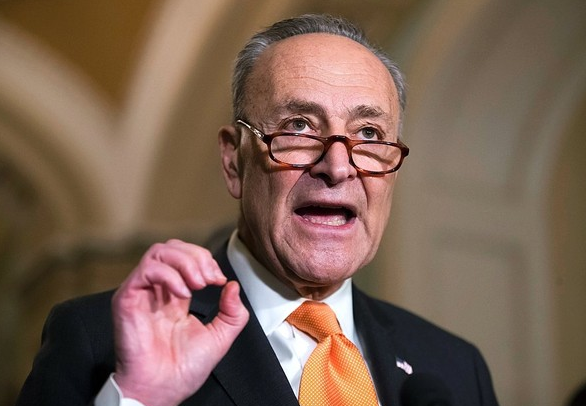Schumer’s cannabis reform bill may benefit some companies more than others, say experts

Over the last few months, Senate Majority Leader Chuck Schumer has constantly reaffirmed his mission to federally deschedule cannabis across the United States. In order to accomplish this task, he has vowed to push forward with legislation, even if it does not garner the support of President Joe Biden.
A draft edition of his broad-scale cannabis reform measure, titled, “The Cannabis Administration Opportunity Act,” was recently revealed to the public. Based on the proposed legislative framework, Schumer’s bill would eliminate cannabis from the Controlled Substances Act (CSA).
In addition to removing the green plant from the CSA’s definition of prohibited substances, the Act would also grant states the power to determine precisely how they wish to legalize cannabis, as well as give them authority to establish social equity programs that assist people residing in disadvantaged communities.
While The Cannabis Administration Opportunity Act may face a grueling journey to enactment – it must first gain approval from the U.S. Senate – industry experts are already expressing their interest in regards to the positive and negative repercussions that Schumer’s measure may have on various-sized players in the American cannabis industry.
Large companies with ample capital are expected to benefit most from Schumer’s federal cannabis legalization bill
The majority of experts would nod their heads in agreement with those who say that large companies (particularly those with plenty of financial backing) are likely to reap the greatest rewards from Schumer’s federal cannabis legalization bill.
Chief Executive Officer (CEO) of 3C Cannabis Consulting, Nic Eastley, foresees the “big dogs” being the biggest winners. Some examples include multi-state operators (MSO’s) like Massachusetts-based Curaleaf and Illinois-based Green Thumb Industries.
In addition to the aforementioned companies, cannabis product brands that boast a large national presence, such as Colorado-headquartered Wana Brands and California-headquartered Cookies, also stand to attract plenty of business if cannabis is legalized at the federal level.
Fortunately for smaller companies, the social equity requirements featured in Schumer’s federal cannabis legalization bill indicate that such businesses would benefit from protections against much bigger firms; thus granting small-scale business owners the chance to scale their brand image and turnover greater profits. Interstate commerce is another aspect of Schumer’s bill that would benefit small-scale craft cannabis farmers
Schumer’s federal cannabis legalization bill could positively impact the industry at large
Although Easley predicts that it’s likely “going to be the big dogs that win” when either Schumer’s bill or a different measure is adopted into law, it goes without saying that the cannabis industry as a whole will prosper once the plant is legalized at the federal level.
Well-established mainstream companies like Canopy Growth, Cronos Group and Tilray are likely to cash-in on federal cannabis legalization first and foremost due to their dominance in the legal cannabis space. However, industry experts feel confident that companies of all sizes will thrive once regulatory barriers have been lifted.
Moreover, if Congress passes the SAFE Banking Act, banks and credit institutions that conduct transactions with cannabis businesses would be protected from federal interference. This means that single-state operators and smaller MSOs could gain greater access to funding with lower interest rates.
Currently, small-scale cannabis companies are forking out between 11-20 percent in terms of interest rates, whereas larger operators are paying interest lower than 10 percent by capitalizing on substantial equity.







